In the construction industry, as the use of steel factory building becomes more and more popular, more and more attention is paid to the production, transportation and installation technology of steel factory building, and at the same time, rapid development and continuous improvement have been achieved. How to further improve the production and installation accuracy of steel factory building and reduce costs are a topic facing the steel factory building industry. From the perspective of improving the installation accuracy of steel factory building, some issues and specific control methods that must be highly valued in the main links of production, transportation, and installation are analyzed and summarized.
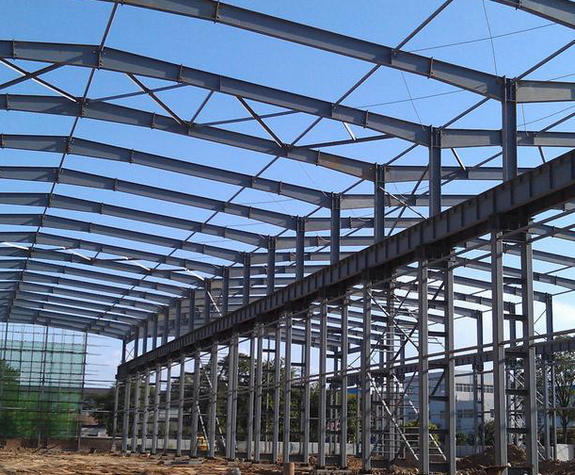
Steel factory building production and transportation control
The precise size of the steel structure building is the basic and prerequisite to ensure the accuracy of the overall structural size and the smooth installation. Therefore, it is necessary to accurately grasp the straightness and distortion of the steel column, The distance from the connecting holes of the column and beam to the bottom of the column, the processing accuracy of the connecting holes, the straightness of the roof beams and the processing accuracy of the column-beam connecting plates, the position size of the tie bars or support connecting plates relative to the beam and column itself and the position size of the purlin brackets and etc.
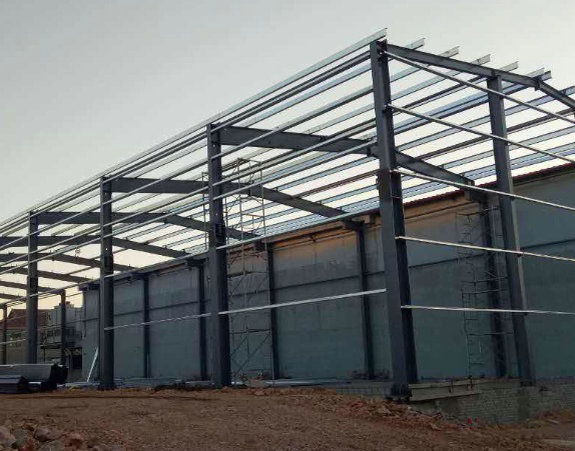
In order to avoid and reduce the columns, beams, tie bars and other fittings deformation occurred during transportation, The transportation company should be required to add more support points in the full length range when binding the components, and use wood as hard as possible between them. The peripheral binding should be firm so as to minimize the deformation of the components due to vibration or heavy pressure in the transportation process. Two-point hoisting method should be used when loading and unloading. If the components are too long, a pole can be used and the hanging points should be appropriately increased; when the components are stacked at the worksite, the number of layers should be reduced as much as possible, generally no more than 3 layers, meanwhile, the supporting points should be appropriately increased to prevent the components from deforming under pressure. Never relax the control of transportation, lifting, unloading, stacking, etc. Otherwise, even if the steel structure plant’s components are made accurately, there will be problems in the transportation and other links, which will cause major troubles in the installation of the steel structure plant.
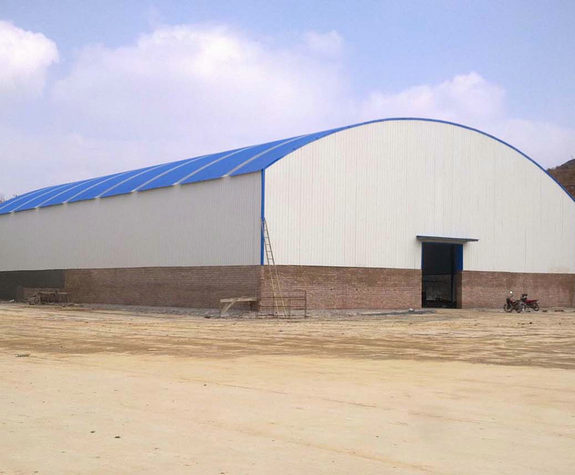
Quality control of steel factory building installation process
Before the steel factory building is installed, various preliminary work must be done in earnest. For example, before hoisting, the installer should retest the components, and hoisting can only be carried out under the premise that the components are not deformed and the installation dimensions are correct. In addition, after confirming that the strength of the foundation concrete meets the requirements of the specification, the installer should also inspect the embedded bolts or cup openings of the steel column foundation. If the position of the foundation and the elevation dimension are found to be deviated, the position should be recorded so as to adjust the position of the steel column.
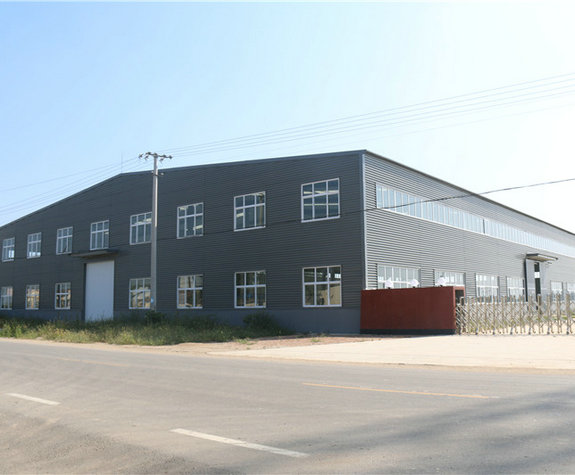
In order to improve the installation precision of the overall steel factory building, it is best to choose the part of the workshop that has inter-column supports, tie rods and roof supports to install first. After this part of the steel column is hoisted, the axis and elevation of the steel column should be re-measured. After rectifying the deviation, the steel column is temporarily stabilized with the cable wind rope, and then the column supports, roof beams and inter-beam tie rods are installed. This is the so-called Rough installation.
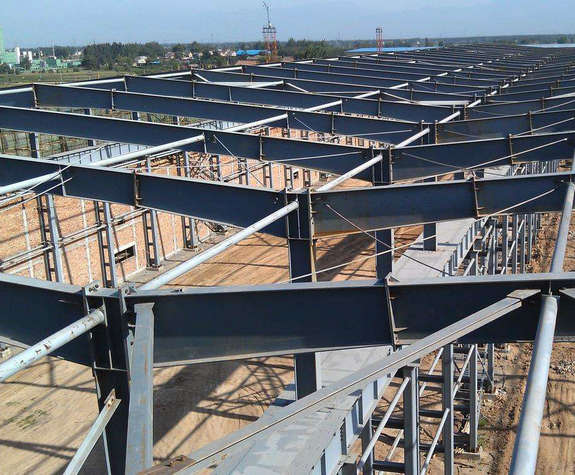
All temporary fixing bolt holes that need to be welded on-site should be designed with long shaped holes, which is convenient for installation and adjustment, and is more beneficial to ensure the overall installation accuracy. The unilateral connecting holes of the purlin and other secondary components should also be designed with long shaped holes, of course, the related gaskets should be enlarged accordingly. Special attention should be paid to the fact that since the installation of the purlins is high-altitude operations and the wall is thin, if the installation holes are deviated and sprayed at high altitudes, it will indeed cause a lot of inconvenience, danger, and affect the appearance.